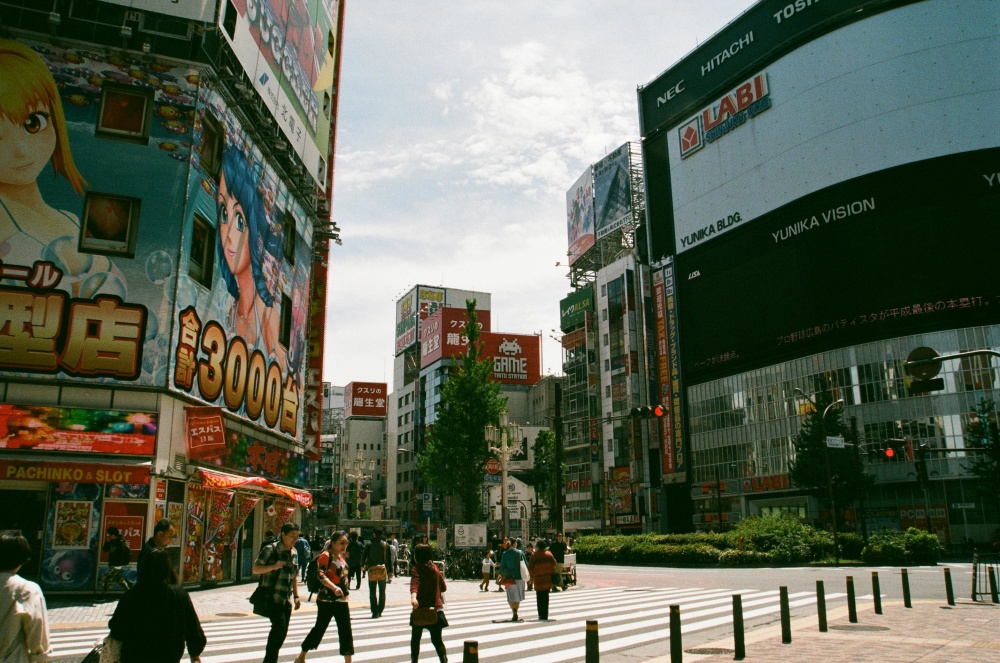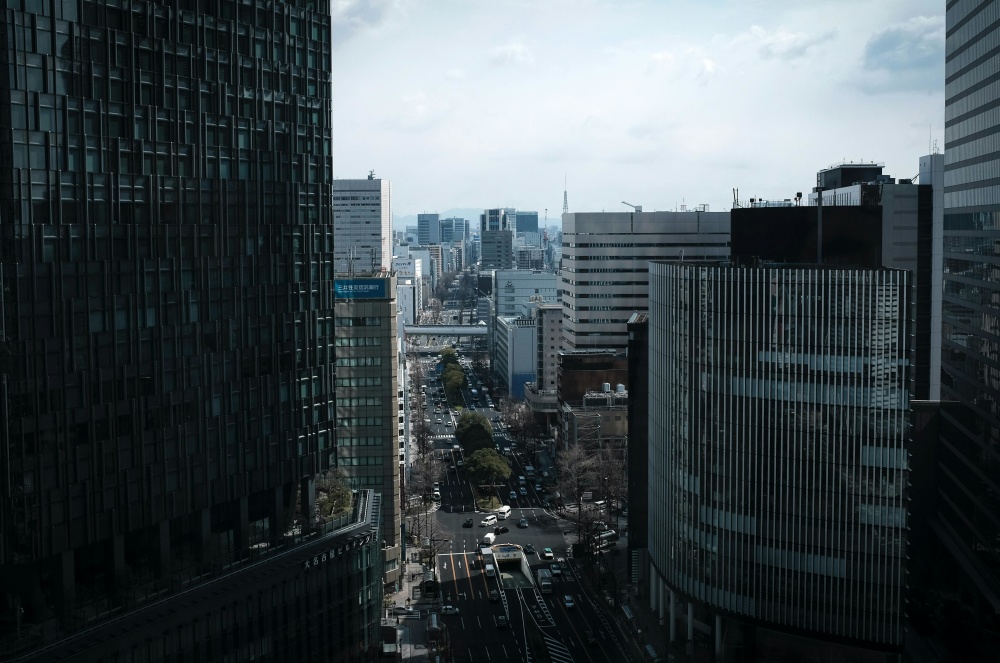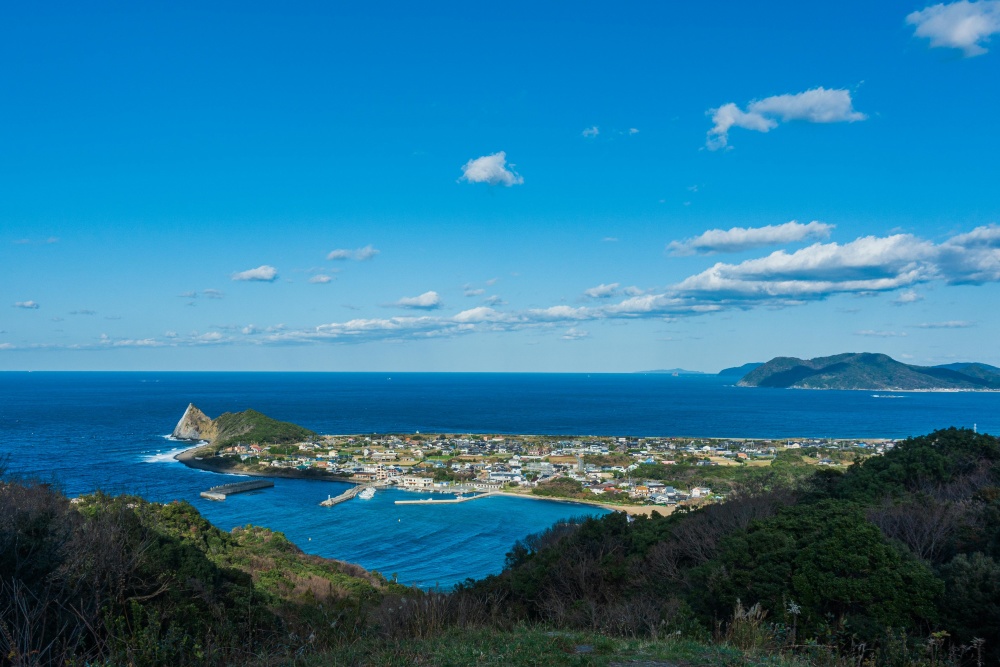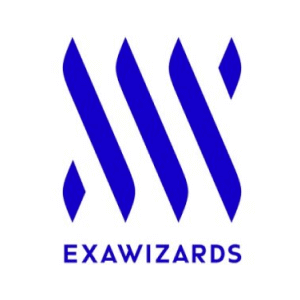Updated October 22, 2025
Top Cities in Japan for Startups in 2025
With a growing entrepreneurial spirit and active participation of local governments, Japan is on the road to become a top destination for startups.
I talked about this in my other posts, like startups in Japan and Shibuya Startup Support. But it's worth reiterating: For the past decade, the Japanese government and private businesses have been joining forces to create attractive incentives, making it easier for entrepreneurs to start businesses here.
In this article: 📝
A Brief Overview: Japan Startup Ecosystem
The Japanese government plans to reach 10,000 startups and 100 unicorn startups (a startup valued over a billion USD) by 2027. To hit these targets, the country has already been providing some major incentives and support initiatives.
For instance, the "startup visa", mentorship programs, and incubation centers have contributed significantly to the country’s growing number of sprouting businesses, especially in areas like Shibuya in Tokyo.
That said, Shibuya isn’t the only place in Japan receiving support. The government has declared other cities, like Fukuoka, as Japan startup cities, which effectively makes them pilot zones for startups, with additional benefits and incentives to promote entrepreneurial activities in the region.
Still, there’s more to Japan’s startup scene than initially meets the eye. So, let’s take a broader look at Japan and see what each region/city has in store for the startup community and which are the best cities in Japan for software engineers.
Where To Start a Startup in Japan: Kanto Region (Tokyo, Kanagawa, Ibaraki)
The Kanto region is an important geographical region located on Honshu Island. It comprises seven prefectures, including Tokyo, Kanagawa, Chiba, Gunma, Tochigi, Saitama, and Ibaraki.
In terms of startups, nothing can beat the entrepreneurial heaven that is Tokyo, so let’s start here.
Best Places For Startups in Japan: Wards Area of Tokyo Metropolis
As a metropolitan area, Tokyo is by far the most cosmopolitan and, therefore, startup-centric area in Japan.
Together with its many special wards, Tokyo fosters an environment where both local and international businesses can flourish. Many foreign entrepreneurs choose to start their businesses here, which isn’t a surprise considering the many initiatives the Metropolitan government has created to foster a better environment for startups to grow.
This is also where you’ll find the most expats and the biggest tech community, as you’ll see in my post on Tokyo meetups.
When I say that Tokyo is in the lead, I mean it. According to data obtained from Startup DB, the metropolitan area houses nearly 70% of the country’s total number of startup companies.
To put things into perspective, the municipality that follows closely in second place, Osaka, houses nearly 1,000 companies, while the Tokyo area has over a whopping 9,000.
Considering this, it’s no wonder Tokyo is its own separate thing, so let’s take a look at some of the individual wards and explore what they’re all about.
Shibuya: Welcome To The Silicon Valley of Japan
Shibuya is the first place that comes to mind in Japan regarding entrepreneurship. This is the biggest tech business hub in all of Japan, which is why it’s often called the Silicon Valley of Japan.
Here, you’ll find some of the biggest names in the global tech scene, like Google, as well as countless startups that exist thanks to the special initiatives in the area.
For example, the Startup Hub Tokyo is located here, a startup base that serves as a hub for startup events and provides consultancy and mentoring to those with a brilliant idea or product. Similarly, the Shibuya Startup Deck, which is a collaboration between the city government and the private industry, also actively supports startups here in the Shibuya Ward.
To learn more about the startup scene in Shibuya and the government support offered, head on over to my post on Shibuya Startup Support.
Minato: An International Business Hub
Like Shibuya, Minato is another popular area of Tokyo that’s heavily populated by foreigners and foreign businesses, making it one of the most common locations for international entrepreneurs to start a business in Japan.
Many consulates are located in the area, and you’ll also find lots of shopping malls and streets. This isn’t all, as the tech giants Facebook and Apple are based here in Roppongi, as well as Japan’s first unicorn startup Mercari.
In addition to being in central Tokyo, another good reason to start a business here is the many subsidy programs the government and private sector offer to small and medium-sized enterprises.
Shinagawa
Shinagawa houses the Gotanda neighborhood, also called the Gotanda Valley or Silicon Valley of Tokyo, since its popularity among startups has risen considerably in the past decade.
The bayside area of Shinagawa houses the lovely Shinagawa Park and a part of the Meguro River with its scenic sights. As I mentioned, the area is bustling with startups, making it an affordable alternative to Minato or Shibuya for those looking to start a business. You’ll find that the rent prices, including eating and shopping, are comparatively cheaper here.
The renowned game designer Hideo Kojima’s Kojima Productions, the FinTech company Freee, and the gaming veteran SEGA Corporation are all headquartered in Shinagawa.
Chiyoda
In Chiyoda, you’ll find the neighborhood Akihabara, which is famous among anime, manga, and video game culture enthusiasts.
This area also houses many embassies and important government buildings like the Supreme Court and the Imperial Palace, but it also has a lively business scene. As it’s located in the heart of the city, living and working here is as convenient as it gets.
Nineteen companies that rank on Fortune’s 500 list are in Chiyoda. In fact, well-known names like Creatures Inc., the Pokemon Company's co-owner and the Pokemon Trading Card Game developer, Japan Post Holdings, and Sony Music Entertainment are also located here.

Shinjuku
Shinjuku City is known for its lively nightlife, shopping streets, and buzzing high-class restaurants and bars, but also for its great startup scene.
You have one of the most crowded stations here in Japan, which means lots of foot traffic. This is another reason why it’s a prime area for businesses, as you can reach it easily even if you live in the more suburban areas of Tokyo.
The famous game company Square Enix, as well as Reazon Holdings, LINE Corporation, and Quest Software are all located here.
Meguro
If you’ve heard of a little company called Amazon, Meguro is where its Japanese offices can be found. That said, there’s more to Meguro’s business scene than the e-commerce giant.
The lovely Meguro River’s riverside makes for a scenic route, especially during the cherry blossom season, and a part of the University of Tokyo’s campus can be found here as well.
There are also quite a number of museums, including the Meguro Museum of Art, and some smaller art spaces and galleries, which show the artsy side of the ward. In addition, you’ll also see lots of historical shrines and religious places, including St. Paul’s Church in Gohongi.
Meguro ward is as business-centric as it’s culturally inviting, as Walt Disney Japan, Unilever Japan, and the head office of the discount store chain Don Quijote are all headquartered here.
Kanagawa Prefecture: Port City of Yokohama
In the south of Tokyo lies the Kanagawa Prefecture, also located on Honshu Island. The coastal prefecture’s capital is Yokohama, which has thrived significantly with the opening of the port in town back in the 1850s.
The port city of Yokohama is a great place to live and start a family, as I explained in my top cities in Japan to raise a family article, but that’s not all there is to it. The city is also a big startup hub, and those considering starting a company here can benefit from the ample startup support that’s available in the area.
Most importantly, Yokohama has the Startup Port Yokohama initiative, which brings the private sector and the government together to create a better environment and incentives for startups to grow in the city.
The culture of innovation here isn’t anything new, as Yokohama, collectively with the Tokyo area, was consecutively the #1 area in Japan with the most international patents two years in a row back in 2016 and 2017. The area is still named today as the biggest science and technology cluster (a specific area with high patent filing and scientific research activity) in the world.
Lastly, as the grouping of the two cities as the Tokyo-Yokohama area is common in the business world, the area also ranks as the number one startup ecosystem in Japan and is among the top 15 startup ecosystems globally.
Ibaraki Prefecture: The Science and Tech Hub, Tsukuba
In the northeast of the Kanto region, along the coast of the Pacific, lies the Ibaraki prefecture. While the capital city, Mito, is known for its lush greenery and blossoming trees, there’s another player in the area that’s known specifically as a tech hub, and that is the city of Tsukuba.
Complete with a space center, a planetarium, and tons of science exhibits in the town’s Expo Center, Tsukuba is the perfect haven for science and tech geeks. Currently, Tsukuba City handles over 30% of the strategic R&D happening in the country, and the population is highly educated.
It’s estimated that about 20,000 registered researchers live in the area, but that’s not all. The city also fosters innovation by utilizing the research conducted in the area. In fact, Tsukuba is said to be the home of over 350 startups.
Tsukuba is a great place to start a business because the city is actively working on open innovation initiatives, like the Tsukuba Startup Park, which is an incubation center offered by the municipality.
Here, entrepreneurs can use the available space and facilities to develop their ideas and receive mentorship to expedite the growth stages of their companies.
Where To Start A Startup in Japan: Aichi Prefecture and Nagoya City

Known for Toyota Motors and its headquarters located in the area, Aichi Prefecture is also located on Honshu Island. The capital, Nagoya City, is the most populous one in the area.
With a dedicated portal for startups, the Aichi Prefectural Government is working relentlessly to turn the region into an innovation hub. The support measures provided here aim to create a global hub out of the city, and the Station AI planned to open in 2024 is slated to become a central support base for all entrepreneurial and innovative activities in the area.
In addition, Nagoya is home to valuable higher education institutions like the Nagoya Institute of Technology and Nagoya University. You’ll also find incubation centers like the Nagoya Startup Tech Garage here, which is a government-backed initiative focusing on creating new businesses and offering coworking spaces.
Last but not least, another big reason why Nagoya is great for startups is due to its history of manufacturing, especially in the automobile sector.
Thanks to the infrastructure and know-how that became a part of the city’s heritage over the years, and the government’s support towards robotics, automotive, and advanced manufacturing, new businesses that provide manufacturing and robotics-related solutions can develop and thrive faster in Nagoya.
Fastest Growing Cities in Japan: Kansai Region (Osaka, Kyoto, Kobe)
Located in the heart of the largest island of Japan, Honshu, the Kansai region spans some of the country's largest and most impactful cities, such as Osaka, Kyoto, and Kobe.
Much like the Tokyo-Yokohama area, the Kansai region is no short of startups and, therefore, tech communities (see my post “Kansai Tech Communities”). In fact, considering that powerhouses such as Kyoto and Osaka are located here, the region has the second-highest startup activity in Japan, following the Tokyo area.
For instance, the amount of funding activities in both Kyoto and Osaka has seen an exponential increase, with both cities seeing over 100% increase in the past five years.
What’s more, the Kansai region also seems to be doing quite well in terms of another significant indicator of startup growth: the external funding track record of companies.
Both Kyoto and Osaka have historically had a low percentage of companies that were able to receive venture funding. However, the percentage of funded startups has been increasing in both areas.
Osaka: Not Quite Tokyo, But Quieter Than Tokyo
Japan’s third largest city, Osaka, is home to many well-known tech companies like Panasonic and Sharp.
This is another popular destination among foreign software engineers and entrepreneurs who want to make it big in Japan.
The city has been going through a huge technological revolution, and it is often named Japan’s other Silicon Valley. In fact, you’ll even find a huge dedicated tech space in the city that’s all about displaying the latest cutting-edge technology that developers call The Grand Front Osaka.
According to data obtained from STARTUP DB, in 2022, Osaka became the municipality with the second-highest number of startups, following Tokyo.
If you want to learn more about the tech and startup scene in Osaka, I have a detailed section in our blog introducing top Osaka tech communities you might want to check out.
Kyoto: The Old Capital, The New Business Hub
A big city like Kyoto doesn’t need much introduction, as it’s easily one of the most iconic cities in Japan, where the gaming giant Nintendo has its headquarters.
The city is also the home to the Kyoto Institute of Technology, which contributes to innovation in the region with the research and development activities happening at the university’s many cutting-edge research departments.
An important point that sets Kyoto apart from other big cities in Japan is the emphasis on hardware production. The city houses a considerable portion of the country’s manufacturing industry, with big factories located here, and those who want to focus on hardware development may especially want to check out the opportunities in the area.
You can learn more about the tech community and expat scene in Kyoto by checking out this section where I introduced Kyoto tech communities.
Kobe: A Port City of Innovation
Kobe is a perfect blend of nature and city life, and the old and the new. The city houses one of the oldest Shinto Shrines, but there are also modern, high-rise buildings stretching out into the sky by the coast that give Kobe that big city look.
Kobe also has a stellar startup ecosystem and has a dedicated portal called Kobe Startup to welcome and inform anyone who wants to start a business in the city. The mentorship and urban innovation programs that support the development of city-wide solutions are among the most important initiatives introduced on the platform.
That said, smart city initiatives aren’t the only focus of Kobe’s startup ecosystem. The medical industry is also quite big in Kobe, with over 360 companies actively working in the medical field here.
Together with some of the country’s best hospitals, the med-tech companies in the region are part of a network called Kobe Biomedical Innovation Cluster (KBIC), which provides a research and mentorship support system for med-tech companies.
You can learn more about the support system provided by the KBIC on the official Kobe Startup website.
Startup City Japan: Kyūshū Island and The Startup City Fukuoka

Kyūshū Island is Japan’s third largest of the four main islands, located in the southernmost region of the country. With a subtropical climate throughout, this is the island paradise you’ve always dreamt of.
With many active volcanoes rising out of the ground, you’ll find countless hot springs (called onsen in Japan), and the famous onsen town Beppu. With beaches stretching out into the horizon, this is one of the nicest places to live.
However, one thing that’s as active as the volcanoes in Kyūshū is a bustling startup scene, largely centered around the country’s 6th largest city in the region, Fukuoka.
I talked about Fukuoka and everything it has to offer in great detail in a previous post. It’s a great place with a lively expat scene, lots of startups, and an active tech community that holds interesting events and meetups throughout the year.
However, one important detail about Fukuoka is that it’s actually designated as a “startup city” by the government. This means that startups founded in Fukuoka receive special incentives and support.
The Startup City Fukuoka initiative also makes the city a pilot zone for a smart city prototype, allowing urban tech companies to test their products and services in the real world. What’s more, the city offers a special type of visa for entrepreneurs who want to start a business here, called the startup visa.
With a base like Fukuoka Growth Next that offers coworking spaces and makes collaboration among peers easier and over 87 billion yen funds raised annually, Fukuoka is by far one of the fastest-developing Japan startup cities. The city also houses a great expat community, making it one of the best cities in Japan for software developers who want to stay at the forefront of innovation.
Best Cities in Japan for Software Engineers: Hokkaido Region, Sapporo, and Hot Springs
While it may be way down our list, the mountainous Hokkaido region isn’t the least interesting one by any means. I talked about this in my post on snowboarding and skiing in Japan, but this region houses many of the best ski resort towns in Japan and is a common destination among those who love winter vacations and sports.
The freshest powder, or pow, as snowboarders call it, isn’t the only thing Hokkaido is known for. The island region is the second largest island in Japan, but it’s also the largest prefecture in the country.
The capital city Sapporo, like Fukuoka, is a startup city. This means that it’s one of the few cities in Japan that provide a special startup visa to foreigners who want to start a business here. Additionally, there are a variety of government incentives and benefits like mentorship, coworking spaces, and a soft-landing subsidy of up to 300,000 JPY for initial business expenses upon application.
The Sapporo Venture Festival is also a testament to the strong tech scene of Sapporo, as it’s a popular annual event that attracts developers from all over Japan.
Final Verdict: So, Where’s The Best City To Start A Business in Japan?
As you see, there’s much more to Japan’s startup scene than initially meets the eye.
Sure, if you’re asking, “Which city has the most startups?” the answer is Tokyo. Still, thanks to the government’s startup city initiatives and the five-year plan to reach 10,000 startups and 100 unicorn companies, many other cities in Japan have become active players in Japan’s innovation scene today, and comparing the number of startups isn’t as relevant.
So, if we reframe the question and ask, “Which city has the best startup culture in Japan?”, you’ll have a much more varied answer.
For instance, if you like a sub-tropical climate, the startup city Fukuoka might be the best place for you. Alternatively, if you want to be in a big city but don’t want it to be as hectic as downtown Tokyo, Osaka may suit your needs better. Of course, you also have Kyoto, the historical capital, for those who want to experience Japan’s past closely.
Another option, Yokohama, is a common choice among those who like to stay close to Tokyo but live in a nice and breezy port city. For the same reasons, many people also prefer to live in Kobe while having the option to visit Osaka frequently.
So, it’s really up to you to pick what kind of life you’d like to live in Japan.
That said, if you’re still unsure which city is the best for foreigners and has a tech-focused expat scene, you might want to check out my posts where I introduced the best tech conferences throughout Japan and the best hackathon events in the country.
Get Job Alerts
Sign up for our newsletter to get hand-picked tech jobs in Japan – straight to your inbox.







